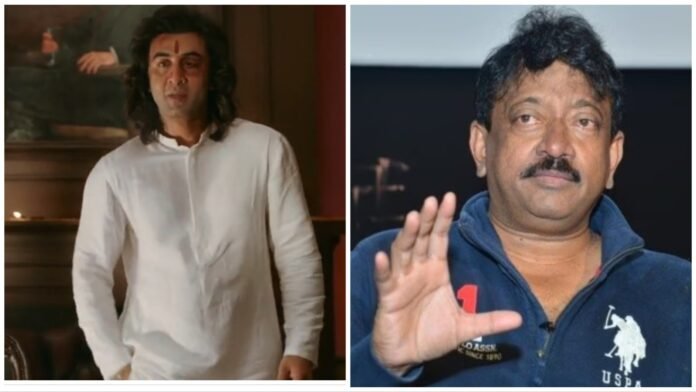Renowned filmmaker Ram Gopal Varma (RGV) recently shared his thoughts on the remarkable box office success of his latest venture, “Animal.” In a candid interview, RGV expressed that the reception of the film signifies a shift in the preferences and expectations of the Indian audience, emphasizing that “Indians are not the same Indians.”
The success of “Animal” has resonated across the industry, with its unconventional narrative and powerful performances garnering widespread acclaim. RGV, known for his unique storytelling, believes that the changing tastes of the audience contribute to the film’s triumph at the box office.
In the interview, RGV delved into the evolving mindset of the Indian audience, highlighting their increased openness to experimental and diverse content. He acknowledged the impact of digital platforms, stating that exposure to global content has broadened the horizons of Indian viewers, making them more receptive to unconventional storytelling.
The director emphasized that the success of “Animal” reflects a departure from traditional cinematic norms, where audiences are now seeking narratives that challenge conventional storytelling patterns. RGV expressed his satisfaction with the response, stating that it encourages filmmakers to push boundaries and explore new creative territories.
“Animal” has also been praised for its ensemble cast, featuring stellar performances by Ranbir Kapoor, Anil Kapoor, and Parineeti Chopra. RGV commended the cast’s dedication and the chemistry they brought to the screen, underscoring the importance of actors in conveying the depth of the narrative.
RGV’s Thoughts Have Awaken Public’s View
The film’s success has sparked discussions about the changing landscape of Indian cinema, with many industry experts noting a growing appetite for content that goes beyond mainstream formulas. RGV’s insights into the audience’s evolving taste align with a broader trend seen in recent years, where experimental and content-driven films have found commercial success.

As the interview concluded, RGV expressed optimism about the future of Indian cinema, anticipating a continued shift towards diverse and thought-provoking narratives. He encouraged filmmakers to embrace the changing preferences of the audience and push the boundaries of creativity, asserting that this evolution is essential for the growth and vitality of the film industry.
RGV’s reflections on the success of “Animal” offer a glimpse into the dynamic nature of the Indian film industry. The film’s triumph at the box office signifies a changing paradigm in audience expectations, with a newfound appreciation for narratives that challenge the status quo. As filmmakers continue to explore uncharted territories, the landscape of Indian cinema is poised for exciting transformations, fueled by the evolving tastes of a diverse and discerning audience.
RGV’s perspective on the success of “Animal” goes beyond the box office numbers, delving into the socio-cultural aspects of storytelling. He believes that storytelling is a reflection of society, and the reception of a film mirrors the collective consciousness of its audience. According to RGV, the positive response to “Animal” indicates a willingness among Indian viewers to engage with narratives that mirror the complexities of contemporary life. This, he asserts, is a positive sign for the industry, as it encourages filmmakers to craft stories that resonate with the evolving sensibilities of a diverse and discerning audience.
In this era of cinematic evolution, RGV sees “Animal” as a testament to the changing dynamics of storytelling, where the audience’s demand for substance and novelty propels filmmakers to experiment and innovate. As the film continues to make waves, RGV remains optimistic about the future, anticipating a cinematic landscape where creativity knows no bounds, and filmmakers are empowered to push the envelope, creating narratives that captivate and challenge in equal measure.

